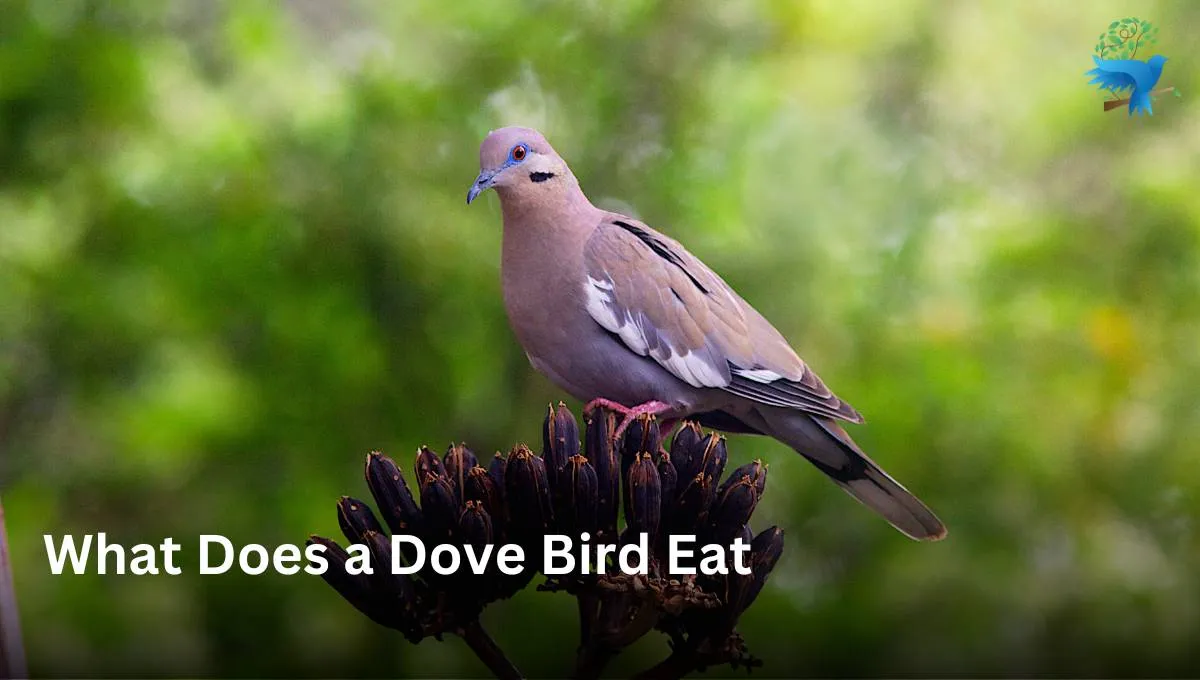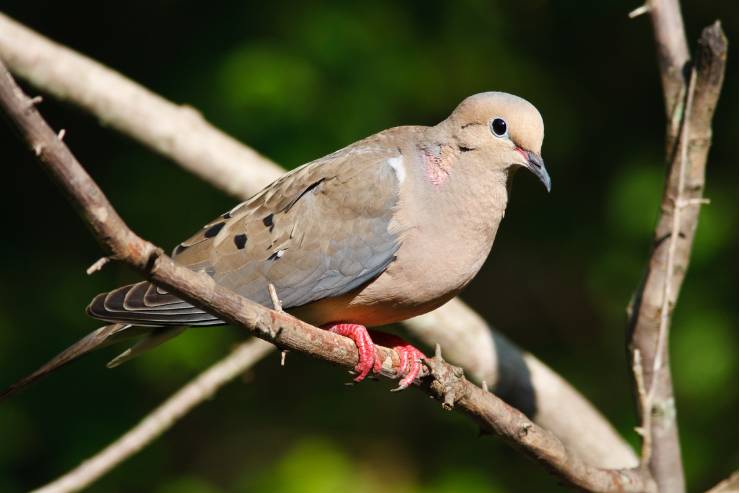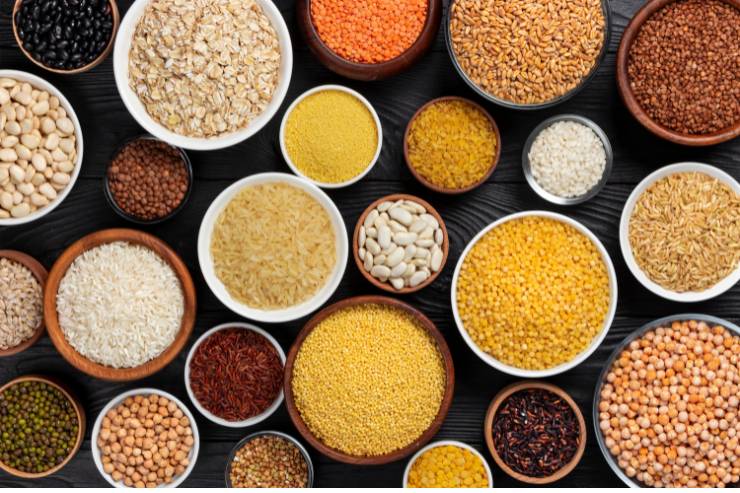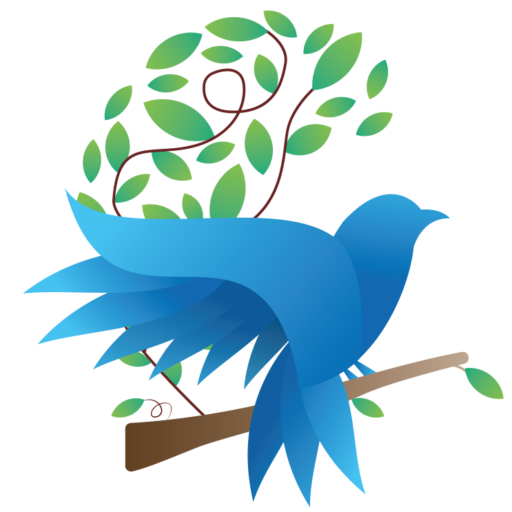What Does a Dove Eat?

Doves are a diverse group of birds belonging to the Columbidae family, including over 300 species worldwide.
They are typically small to medium-sized birds with slender bodies, short legs, and pointed wings. Doves are known for their gentle demeanor, soft cooing calls, and graceful flight.

Understanding doves’ eating behaviors is crucial for multiple reasons. It helps to protect their habitats and vital food sources, which aids conservation efforts.
Understanding their food choices also helps preserve ecological balance because of their roles as consumers and prey in ecosystems.
Finally, awareness of how they feed improves the birding experience by enabling enthusiasts to see these elegant birds more successfully in their native habitats.
Let us move forward and learn in depth about what dove birds eat.
Types of Famous Dove Birds
Doves are members of the Columbidae family, including several species. Some common types of doves include:
- Mourning Dove (Zenaida Macroura): The Mourning Dove, found all over North America, can be identified by its soft, mournful cooing sound.
- Rock Dove (Columba Livia): Also known as the common pigeon, the Rock Dove is found in urban areas worldwide and is often seen in city squares and parks.
- White-winged Dove (Zenaida Asiatica): It is found in the southwestern United States and parts of Mexico. White-winged Dove has distinctive white-winged patches.
- Ring-necked Dove (Streptopelia Capicola): The ring-necked dove is a common and frequently populous bird species found throughout East and Southern Africa. It is also known by the name half-collared or Cape turtle-dove.
- Common Ground Dove (Columbina Passerina): The common ground dove is a tiny bird found in parts of Central America, the Caribbean, and northern South America, as well as the southern United States.
What Does a Dove Eat? The Natural Diet of Dove Birds
Seeds and grains
Many seeds and grains, such as millet, sunflower seeds, wheat, barley, and corn, are the primary food sources for dove birds.
They are especially fond of tiny seeds that are readily available in their environment. The availability of seeds greatly influences the diet of dove birds.

In areas where seeds are abundant, they may rely heavily on this food source, while in areas with limited seed availability, they may supplement their diet with other food items such as fruits or insects.
Fruits and Berries
Dove birds frequently eat fruits and berries from bushes and trees like elderberries, mulberries, and wild grapes.
They might also consume the fruits of crops like grapes, figs, and cherries, mainly when these goods are in season and easily accessible.
Nutritional Benefits of Fruits in Their Diet
Dove birds’ general health and vitality are supported by fruits’ critical vitamins, minerals, and antioxidants.
The abundant fruit water also helps the dove birds stay hydrated, especially in hot and dry weather when water supplies may be limited.
Insects and Small Invertebrates
Although most of their diet consists of nuts and fruits, dove birds also eat insects and other small invertebrates to augment their diet.
The extra protein and nutrients that insects like beetles, caterpillars, and ants offer supplement what their diet of seeds might be short.
Adult doves may eat more insects during the breeding season to provide their developing chicks with additional nutrition and promote healthy development.
Human Interaction and Dove Bird Diet
Bird Feeders and Seed Offerings
Popular bird seed mixtures, such as cracked corn, sunflower seeds, and millet, are offered to dove birds at bird feeders.
These seeds are commonly found in commercial bird seed mixes designed to attract various bird species, including doves.
Effects of Human Intervention on Their Diet
By offering a convenient and concentrated source of food, bird feeders installed by humans can substantially impact doves’ nutrition.
While using bird feeders to increase their natural diet can be beneficial. Also, it causes nutritional imbalances or dependence, impairing the birds’ ability to forage and survive.
Factors Influencing Dove Bird Diet
Geographic location
Dove birds’ dietary habits fluctuate according to geographical location since different food sources are available elsewhere.
Dove birds may have access to a greater variety of seeds, fruits, and insects in areas with plentiful forests or grasslands, but their diet may be more restricted in dry or urban environments.
Adaptations to Different Climates and Environments
Dove birds adapt to different climates and environments, influencing their dietary preferences and hunting behaviors.
In colder climates, where seeds and insects may be less available during certain times of the year, doves may rely more heavily on fruits or travel to warmer areas with more food sources.
Seasonal Changes
Dove birds’ diet varies with the seasons as they adjust to variations in food availability.
To boost their reproductive efforts, doves may eat more insects that are high in protein during the breeding season when energy demands are higher.
Their diet may change to consist more heavily of these foods in the fall and winter when seeds and fruits are more plentiful.
Food Scarcity
Dove birds have evolved several survival techniques to withstand food scarcity, including storing extra food in nests or changing their exploring habits to take advantage of different food sources.
Doves may lower their activity levels and modify their metabolic rate during food scarcity to preserve energy until food supplies increase again.
Certain dove bird species are also migratory, covering great distances for appropriate food and shelter at certain times of the year.
Conclusion
Dove birds have a broad diet, mainly consisting of fruits, grains, seeds, and insects. Their tastes vary depending on the season and area.
They must maintain a broad and balanced diet to ensure that they acquire the needed nutrients for development, reproduction, and general vitality. Dietary imbalances can cause health problems and hinder Dove’s ability to survive in their natural environment.
By providing adequate food sources through bird feeders and bird-friendly landscaping, bird enthusiasts may assist dove birds.
Through proactive involvement in habitat management and conservation initiatives, bird enthusiasts help to ensure that dove birds and their ecosystems are preserved for the benefit of future generations.
Frequently Asked Question
What do you feed a dove?
Doves eat a diet rich in high-quality seeds and grains such as millet, wheat, and oats to survive. Also, offer small amounts of fresh produce, including apples, grated carrots, spinach, lettuce, and peas.
Can I feed dove birds at my bird feeder?
Yes, you can attract dove birds to your bird feeder by offering millet, sunflower seeds, cracked corn, and fruits like berries or grapes.
Are there any foods that should be avoided when feeding dove birds?
Dove birds love a variety of seeds and fruits. But it is better to keep processed or salted foods away from them, as well as items that are poisonous to birds, such as avocado or chocolate.

